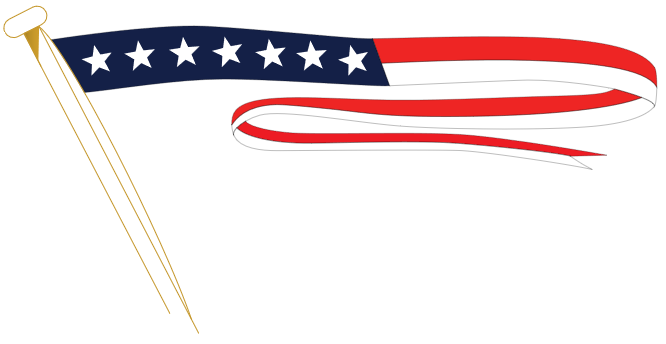Location: Burns Harbor, IN
Date: October 26, 2019
Time: 10:00am CDT
For those who may not have received their tickets or those who may have misplaced their tickets, the Navy will have Will Call set up in the meeting room of the Country Inn & Suites Portage on Friday and adjacent to the Port of Indiana Security Gate on Saturday morning. You must present a valid identification card to be verified against the Navy guest list.
Country Inn & Suites Portage
1630 Olmstead Dr, Portage, IN 46368
Hours of Operation: 12:30 – 2:30pm and 3:30 - 5:00pm
Port of Indiana Security Gate
1172 George Nelson Drive, Portage, IN 46368
Hours of Operation: 7:00 – 9:00am
We are honored and privileged again to have a Naval Vessel named for our capital city, Indianapolis. The Commissioning ceremony will take place on October 26, 2019. We hope you will join us for the many events that will take place as a part of this celebration that honors the hard work of the crew in getting Indianapolis ready for sea and its official entry of Indianapolis into the Navy's fleet. We anticipate the attendance of many senior military leaders, elected and appointed governmental officials, numerous business leaders, community leaders and veterans of previous Indianapolis crews as we honor and celebrate this historic event.
Vip Tours
The Commissioning Ceremony is the U.S. Navy event which marks the official entry of Indianapolis into the Navy’s fleet. As an official Navy event, there is no admission fee; however, due to limited seating and security, admission is by invitation only. Requests for tickets may be made here.
Ticketed ceremony attendees will have an opportunity to tour the ship after the ceremony.
A public reception for ticketed ceremony attendees will be held at the commissioning site immediately after the commissioning ceremony. This reception is hosted by the Commissioning Committee and will feature Indiana food and beverage.
In addition to the above public events, there are also a number of other traditional events which help celebrate this great milestone. These events are coordinated by the Commissioning Committee, a non-profit organization. These events include:
Tours of the USS Indianapolis for VIPs prior to commissioning on Friday, October 25, 2019 from 1 to 3 PM.
The premier VIP reception of the Commissioning week will be held Friday evening October 25, 2019. This is an invitation only event attended by Government, Military and Business leaders, Indianapolis Crew members and others who have supported the Commissioning efforts. This reception provides an opportunity to celebrate the newest USS Indianapolis, her Crew and to showcase the namesake, Indianapolis. Additionally, this is an opportunity for the crew to meet their supporters and thank them for helping bring the ship to life.
An invitation only briefing and breakfast Saturday morning October 26, 2019 from 0730 - 0900, prior to the Commissioning ceremony. This event is for principal ceremony participants, Sr Navy, Government, Community, Industry leaders and other key supporters of the Commissioning efforts.
The commissioning ceremony marks the acceptance of a ship as a unit of the operating forces of the United States Navy. At the moment of breaking the commissioning pennant, the ship will "come alive" and the crew will ceremonially run aboard ship. Thereafter the ship is officially referred to as a United States Ship (USS).
The act of placing a ship in commission marks her entry into active Navy service. At the moment when the commissioning pennant is broken at the masthead, a ship becomes a Navy command in her own right, and takes her place alongside the other active ships of the Fleet.
This ceremony continues a tradition some three centuries old, observed by navies around the world, and by our own Navy since December 1775, when Alfred, the first ship of the Continental Navy, was commissioned at Philadelphia. Once in commission, the commanding officer and crew are entrusted with the privilege, and the responsibility, of maintaining their ship’s readiness in peace, and of conducting successful operations at sea in time of war.
No written procedure for commissioning was laid down in our Navy’s early days, but the act of commissioning was familiar, derived from established British naval custom. Commissionings were simple military ceremonies. The prospective commanding officer came on board, called the crew to quarters, and formally read the orders appointing him to command. He then ordered the ensign and the commissioning pennant hoisted; at that moment the ship went into commission, and the first entry in the ship’s deck log recorded this.

The commissioning pennant is the distinguishing mark of a commissioned Navy ship. A commissioning pennant is a long streamer in some version of the national colors of the Navy that flies it. The American pennant is blue at the hoist, bearing seven white stars; the rest of the pennant consists of single longitudinal stripes of red and white. The pennant is flown at all times as long as a ship is in commissioned status, except when a flag officer or civilian official is embarked and flies his personal flag in its place.
Narrow pennants of this kind go back several thousand years. They appear in ancient Egyptian art, and were flown from ships' mastheads and yardarms from, at least, the Middle Ages; they appear in medieval manuscript illustrations and Renaissance paintings. Professional national navies began to take form late in the 17th Century. All ships at that time were sailing ships, and it was often difficult to tell a naval ship from a merchantman at any distance. Navies began to adopt long, narrow pennants, to be flown by their ships at the mainmast head to distinguish themselves from merchant ships. This became standard naval practice.